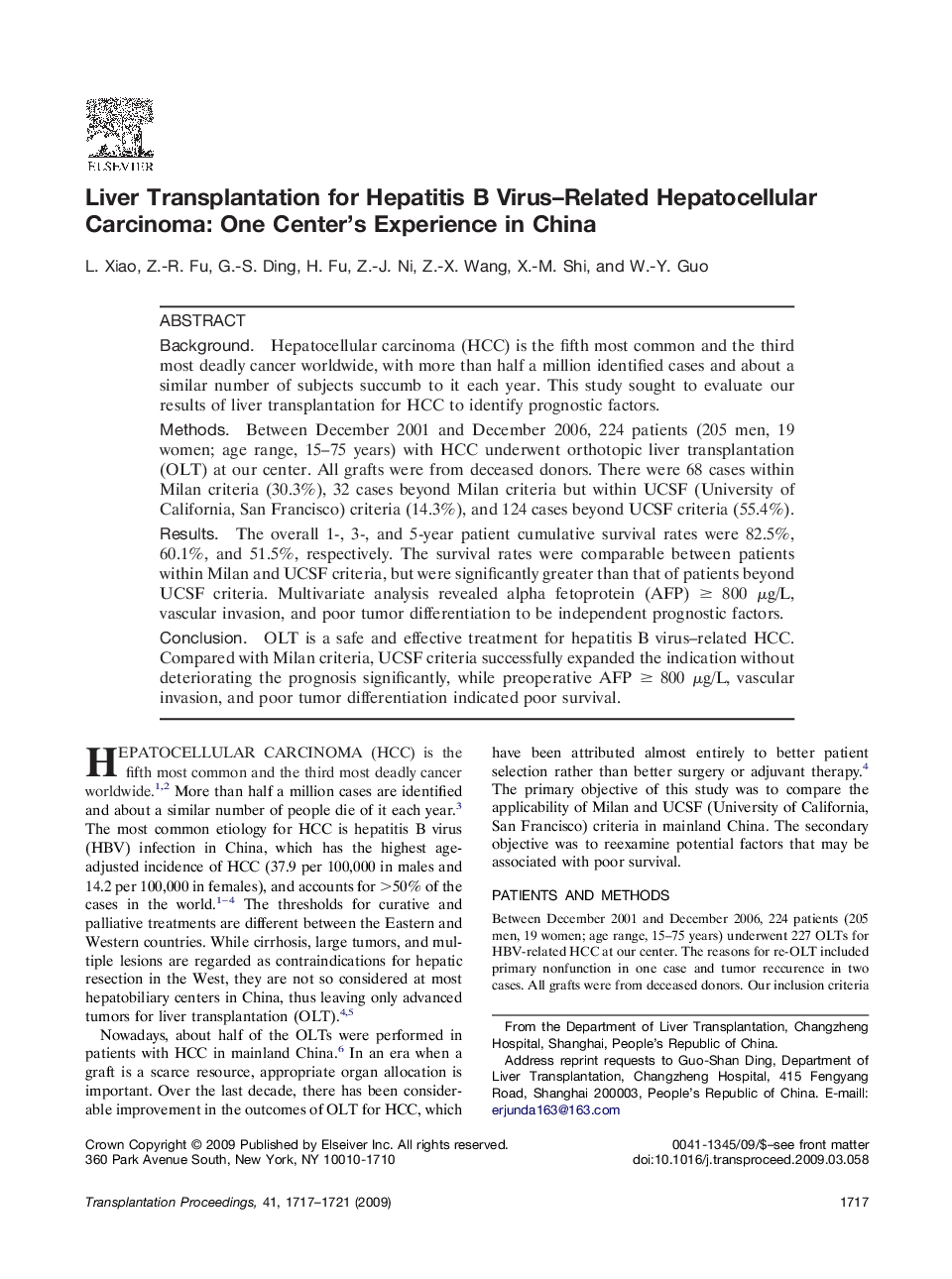| Article ID | Journal | Published Year | Pages | File Type |
|---|---|---|---|---|
| 4259272 | Transplantation Proceedings | 2009 | 5 Pages |
BackgroundHepatocellular carcinoma (HCC) is the fifth most common and the third most deadly cancer worldwide, with more than half a million identified cases and about a similar number of subjects succumb to it each year. This study sought to evaluate our results of liver transplantation for HCC to identify prognostic factors.MethodsBetween December 2001 and December 2006, 224 patients (205 men, 19 women; age range, 15–75 years) with HCC underwent orthotopic liver transplantation (OLT) at our center. All grafts were from deceased donors. There were 68 cases within Milan criteria (30.3%), 32 cases beyond Milan criteria but within UCSF (University of California, San Francisco) criteria (14.3%), and 124 cases beyond UCSF criteria (55.4%).ResultsThe overall 1-, 3-, and 5-year patient cumulative survival rates were 82.5%, 60.1%, and 51.5%, respectively. The survival rates were comparable between patients within Milan and UCSF criteria, but were significantly greater than that of patients beyond UCSF criteria. Multivariate analysis revealed alpha fetoprotein (AFP) ≥ 800 μg/L, vascular invasion, and poor tumor differentiation to be independent prognostic factors.ConclusionOLT is a safe and effective treatment for hepatitis B virus–related HCC. Compared with Milan criteria, UCSF criteria successfully expanded the indication without deteriorating the prognosis significantly, while preoperative AFP ≥ 800 μg/L, vascular invasion, and poor tumor differentiation indicated poor survival.
